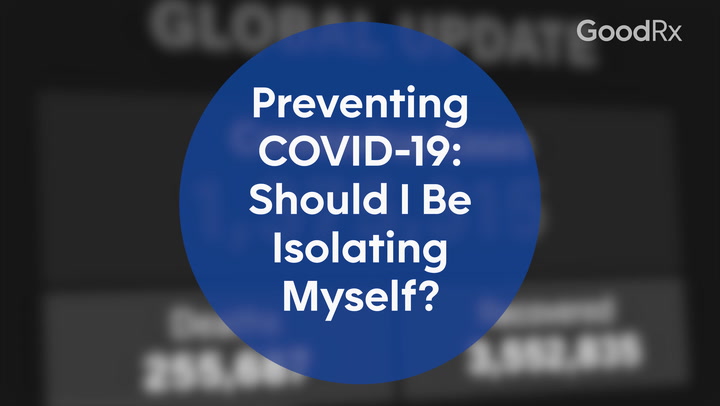
How Much Ibuprofen Is Too Much?
Key takeaways:
Ibuprofen (Advil, Motrin) is a common over-the-counter (OTC) medication that can help relieve pain. It’s safe for most adults and children to take at the recommended doses.
The maximum daily dose of ibuprofen depends on whether you’re using it OTC or as a prescription. For adults and children age 12 and older, the daily limit for OTC ibuprofen is 1,200 mg (6 tablets).
Taking too much ibuprofen can lead to serious side effects, such as stomach bleeding and kidney problems. Overdose symptoms can be life-threatening and require medical attention.
Ibuprofen (Advil, Motrin) is a nonsteroidal anti-inflammatory drug (NSAID). It treats aches, pains, and fever in adults and children. Ibuprofen comes in multiple doses and is available over the counter (OTC) and as a prescription.
Although ibuprofen is one of the most popular pain relievers, there are some things to consider when taking it. It’s safe for most people, but it can become dangerous if you take too much or if you have certain health conditions. Knowing how much ibuprofen to take and how often to take it is essential for staying safe.
Here’s what you need to know about how much ibuprofen is too much.
Search and compare options
Is it OK to take ibuprofen every day?
It may be safe to take ibuprofen every day for a short time. But unless a healthcare professional tells you to do so, you shouldn’t take ibuprofen every day long term.
It’s recommended to take OTC ibuprofen only for pain for up to 10 days or for fever for up to 3 days. If you notice that your pain or fever is getting worse or not going away, stop taking ibuprofen and contact a healthcare professional.
Taking ibuprofen for a longer amount of time without a healthcare professional’s OK can be dangerous. Side effects from taking too much ibuprofen are discussed later in this article.
What is a safe amount of ibuprofen to take?
The maximum amount of ibuprofen you can take depends on whether you’re self-treating with OTC ibuprofen or following dosage instructions from a healthcare professional. Always ask a healthcare professional if you aren’t sure how much ibuprofen you or your child should take.
Ibuprofen dosage for adults
For most adults and children age 12 and older, the recommended dosage for self-treating with OTC ibuprofen is 200 mg (1 tablet) by mouth every 4 to 6 hours. If 200 mg doesn’t help enough, you can increase your dosage to 400 mg (2 tablets) every 4 to 6 hours. But you shouldn’t take more than 1,200 mg (6 tablets) of ibuprofen in a 24-hour period.
If you have chronic painful conditions, such as osteoarthritis or rheumatoid arthritis, a healthcare professional may recommend taking a higher ibuprofen dosage. Prescription-only tablets are available in higher doses than OTC tablets, such as 400 mg, 600 mg, and 800 mg.
It’s also common for healthcare professionals to tell people to take OTC ibuprofen tablets at a prescription dosage. For example, they may tell you to take 3 OTC tablets (200 mg each) at once so that you’re taking a total of 600 mg per dose.
The maximum daily dosage for ibuprofen when following a healthcare professional’s guidance is 3,200 mg in a 24-hour period. But it’s important to take it as prescribed, even if you’ve been prescribed less than the maximum amount listed on the medication’s label.
Ibuprofen dosage for children
Child’s Body Weight* | Child’s Age | Infants’ Liquid Ibuprofen Dosage (50 mg per 1.25 mL) | Children’s Liquid Ibuprofen Dosage (100 mg per 5 mL) | Children’s Chewable Ibuprofen Dosage (100 mg per tablet) |
12-17 lbs | 6-11 months | 1.25 mL (50 mg) | - | - |
18-23 lbs | 12-23 months | 1.875 mL (75 mg) | - | - |
24-35 lbs | 2-3 years | - | 5 mL (100 mg) | 1 tablet (100 mg) |
36-47 lbs | 4-5 years | - | 7.5 mL (150 mg) | 1.5 tablets (150 mg) |
48-59 lbs | 6-8 years | - | 10 mL (200 mg) | 2 tablets (200 mg) |
60-71 lbs | 9-10 years | - | 12.5 mL (250 mg) | 2.5 tablets (250 mg) |
72-95 lbs | 11 years | - | 15 mL (300 mg) | 3 tablets (300 mg) |
*It’s more accurate to select an ibuprofen dose based on your child’s body weight. But if you’re unsure how much your child weighs, you can use their age to determine the dose.
The right dose: Taking the recommended ibuprofen dosage can help lower the risk of complications, such as kidney damage.
Ibuprofen for kids: Physicians review what you need to know about giving ibuprofen to your child.
Side effects to consider: Learn about ibuprofen’s potential side effects — from heartburn to swelling — and how to manage them.
For children, the maximum daily dose depends on your child’s age and weight. It’s generally limited to 4 doses per day, and the total amount ranges between 200 mg and 1,200 mg per day. If your child is under 6 months old, you should contact their pediatrician. They’ll be able to give you the best dose for your child based on their age, weight, and medical conditions.
Can you overdose on ibuprofen?
Yes, it’s possible to overdose on ibuprofen. It can be easy to accidentally take more than what’s recommended, which can lead to an overdose.
Ibuprofen is used in many combination products, such as ibuprofen / diphenhydramine (Advil PM, Motrin PM) and ibuprofen / famotidine (Duexis). Ibuprofen is also included in many OTC combination cold and flu medications. So if you take more ibuprofen on top of an ibuprofen-containing combination medication, you may exceed the maximum daily dose without realizing it.
Always check what active ingredients are included in OTC and prescription combination medications. This can help prevent you from taking too much. You can find this information on your prescription or OTC label. Or double-check with your pharmacist if you’re unsure about whether a medication contains ibuprofen.
What are the risks of taking too much ibuprofen?
When taken as directed, ibuprofen is usually well-tolerated with mild side effects, including stomach upset and dizziness. But it can also cause more serious side effects due to how it works in the body.
Ibuprofen works by blocking substances in your body that cause pain, swelling, and fever. But the substances that it interferes with to relieve pain are also involved with other bodily processes, including:
Stomach and intestine protection
Proper blood flow to the kidneys
As a result, too much ibuprofen can raise your risk of serious bleeding, stomach ulcers, and kidney damage.
Ibuprofen can also raise the risk of life-threatening heart problems, such as heart attacks, heart failure, and strokes. Your risk for these problems is higher if you take more than the recommended dose of ibuprofen. Your risk also goes up the longer you take this medication.
What do you do if you accidentally take too much ibuprofen?
If you take too much ibuprofen, you may experience some or all of the following overdose symptoms:
Severe dizziness
Uncontrollable and fast-eye movements
Trouble breathing or a change to your usual breathing
A blue color change to your face (e.g., lips, mouth, nose)
Call 911 right away if you notice any of these symptoms. Taking too much ibuprofen can be life-threatening and requires emergency care. If you believe you or another person may have taken too much ibuprofen but aren’t experiencing overdose symptoms, contact Poison Control at 1-800-222-1222.
The bottom line
Ibuprofen (Advil, Motrin) is a widely available and common pain reliever. It’s usually safe for most adults and children to take at recommended doses. The maximum daily dose depends on whether you’re self-treating or following dosage instructions from a healthcare professional.
If you take more ibuprofen than recommended, it can lead to serious side effects that will need medical attention. Always speak with a healthcare professional if you have questions about ibuprofen or to confirm how much ibuprofen is OK for you to take.
Why trust our experts?



References
Amneal Pharmaceuticals of New York. (2023). Ibuprofen tablet [package insert]. DailyMed.
Aurohealth. (2024). Childrens ibuprofen- ibuprofen suspension [package insert]. DailyMed.
Eshrad, M. et al. (2024). Ibuprofen toxicity. StatPearls.
Institute for Quality and Efficiency in Health Care. (2021). Peptic ulcers: Research summaries – preventing peptic ulcers. InformedHealth.org.
MedlinePlus. (2023). Ibuprofen.
Ngo, V. T. H., et al. (2024). Ibuprofen. StatPearls.
Topco Associates. (2022). Topcare infants ibuprofen- ibuprofen suspension [package insert]. DailyMed.
U.S. Food and Drug Administration. (2016). Ibuprofen drug facts label.
Walgreen Company. (2023). Childrens ibuprofen 100- ibuprofen tablet, chewable [package insert]. DailyMed.
Was this page helpful?
Related Articles
Browse medications
View AllResearch prescriptions and over-the-counter medications from A to Z, compare drug prices, and start saving.




























